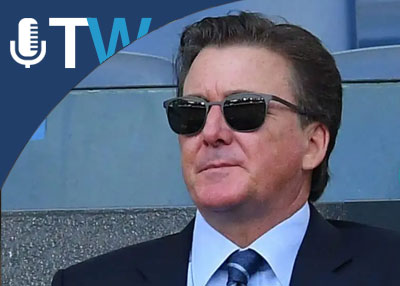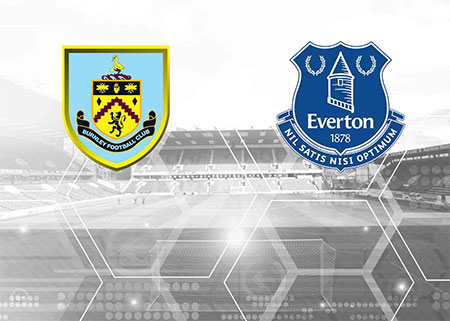Sunday Telegraph
Having a Ball in Holland
IT was February 2001 and Sven-Goran Eriksson's first match as England manager; a friendly against Spain at Villa Park. At half-time Eriksson, his team leading through a goal by Nicky Barmby, sent on six substitutes. One was Michael Ball, a 21-year-old left-back from Everton of whom much had been confidently expected since, along with a fellow schoolboy by the name of Michael Owen, he began to receive professional tuition. ''I came on for Chris Powell,'' Ball recalled last week, ''and right away got a ball I wasn't anticipating. But I managed to do a one-two and send Michael through. It had always seemed to happen — Under-18s, Under-21s and now this. He usually scored and should have done this time too. Although the keeper saved his shot, it settled me and I really enjoyed the rest of the game. I was up against Gaizka Mendieta and did all right.'' Two of the other substitutes, Emile Heskey and Ugo Ehiogu, completed a comfortable victory and it looked as if Ball's full international career was off to a bright start. He is still waiting for his second cap, however, and for most of the intervening five years it has seemed a forlorn hope. Ball was not especially worried when Eriksson gave Powell his place back for the World Cup qualifier against Finland at Anfield a month after the friendly, nor when the Charlton player gave way to Ashley Cole in Albania four days later, but he had no sooner made a lucrative move to Rangers than he was struck down by injury, the persistence of whose effects renders his cheerful account rather impressive. Maybe it is just that he feels there is plenty to smile about at last. Having left Glasgow for Eindhoven early this season, he is preparing to collect a Dutch championship medal — PSV need one point from today's visitors, Groningen, to secure the title with three matches to spare — and further excited by indications that Eriksson will have him watched when Feyenoord come to the Philips Stadion on Wednesday. England must, after all, leave no left-back unconsidered as Eriksson, five weeks before announcing his provisional squad for the World Cup, prepares to judge the fitness and form of Ashley Cole and Wayne Bridge. What an extraordinary twist it would be if Ball found himself once more in the company of Owen and Steven Gerrard; they became friends at the age of eight in Liverpool's youth system, along with the likes of Jason Koumas and Stephen Wright. Later he went with Owen to the FA's ill-fated National School at Lilleshall and switched to Everton. ''Graeme Souness was the Liverpool manager,'' said Ball, ''and he was good about it. He said I should follow my heart.'' Ball grinned. ''So I did.'' At Goodison, under Howard Kendall, he rose swiftly and was in the first team at 17. ''The next season we were fighting relegation. With Richard Dunne, Michael Branch, Danny Cadamarteri — the kids got thrown in to save the club and it worked because we had determination but not fear. I remember facing Ian Rush. I used to hate him for scoring against Everton and now here he was, playing against me, for Newcastle. Then there was Ian Wright, playing jokes, trying to pull your shorts down. It was like living a dream, even if we only escaped the drop on the last day, at Coventry. My career was on the way up.'' When Rangers and Middlesbrough vied for his signature, an attraction in going to Scotland was that he would not have to play against his beloved Everton. For the time being, anyway. ''David Murray [Rangers' chairman] told me he expected to be in the Premiership within a couple of years. He also said they wanted to be a force in Europe.'' Dick Advocaat was the manager and money was being spent: £12 million on Tore Andre Flo as well as £6.5 million on Ball himself. And the squad already featured the likes of Ronald de Boer, Andrei Kanchelskis and Barry Ferguson. Ball had played only a handful of matches when he came off the pitch at Dundee with a knee that was sore and swelling. ''I'd had trouble with the patella tendon at Everton for about 18 months, on and off, but wasn't the type to make a big thing about injuries and the physio just told me to do stretches. When I mentioned it again, Walter Smith let me off training during the week and the knee felt better. But, looking back, I think this was just hiding the problem. So were the injections in the middle of the season and at the end. They helped me get a move to Rangers — but they knackered me. When I flew to Colorado to visit Mr Steadman [Richard Steadman, a surgeon so intimate with the knees of the world's athletes that he is enrolled in the US National Ski Hall Of Fame], he ordered an operation. He told me I was one game away from losing my career because there was just one thin tendon left and, if that had gone, it would have taken years to rebuild the knee. The rehab was said to be five to 12 months but I'd been warned that, in about 30 per cent of cases, a second operation was needed. In all I lost 18 months, during which Rangers completed a double, then won a treble. Then Alex McLeish came in and I started playing. Last season we won the League, on top of the League Cup, and I felt there were rewards for all the hard work and frustration.'' He was happy to pay for them — literally. This being Ball's career, a complication had arisen. Early in the season, it was discovered that, if he played a few more matches, Everton would be due a further £500,000 under the terms of his transfer. By now Rangers, deep in debt, could not afford it. ''I was so disappointed because I'd been looking forward to thanking the fans. But what happened is that the club only used me in the bigger games, like Celtic. Then I'd have a month out of action. You can't keep sharp like that. Eventually I was asked to speak to Everton and we all sat down and reached a deal whereby Rangers would pay Everton a certain amount and I would reimburse the club at the rate of £4,000 every time I played.'' Ball began to take a full part in the campaign at the end of January, so those medals cost him at least £60,000. Not that he was complaining. ''I felt I owed the club. After all, they'd given me a good contract and not had much value for money.'' Last summer, Rangers' priority was to get big earners off the payroll. If Ball went, for example, they could hire several players in the £150,000 to £250,000-a-year range. As deadline day approached, Ball and his adviser, the former England midfielder Trevor Steven, were considering two offers: from Birmingham and PSV, whose erstwhile goalkeeper Ronald Waterreus, now of Rangers, had happened to drop in at the club one day and, upon being told Guus Hiddink needed a left-back, ventured the opinion that Ball would suit the Dutch style, prompting Hiddink to scrutinise videos of him. But Ball preferred to return to the Premiership and thus, as the last day for transfers dawned, he climbed into Steven's car to go to Glasgow Airport for the flight to Birmingham, where Steve Bruce would be waiting. Ball kissed his wife goodbye. When she rang several hours later, eager to have it confirmed the family would be moving back to England, a Continental tone preceded his answering. ''Are you abroad?'' she asked. ''Yes,'' he replied. ''I'm in Amsterdam.'' And he assured her there was an innocent explanation. Innocent, if undeniably bizarre. ''It was the call from Hiddink that did it,'' Ball recalled. ''We were in the car and Trevor handed me the phone. Hiddink told me the things a player likes to hear. He made me feel wanted. He said he'd heard good reports. He also said he knew Sven-Goran Eriksson and that he could improve my game and, after that, who knows? So my mind was racing. I didn't want to let Steve Bruce down, but PSV were a big club, in the Champions League — didn't realise I was ineligible because I'd played in the qualification rounds for Rangers and the rules had just been changed — and Trevor said they had a reputation for improving players' careers. ''In the end — believe it or not — we left it to fate. We got on a plane to London, to catch a connection to Amsterdam which, because we had to sign clearance papers and so on, left us with 20 minutes to get from one side of Heathrow to the other. 'If we make it to Holland,' we reasoned, 'it's meant to be. If we don't, it's a taxi to Birmingham'. On the plane I was wondering what I'd done but there are definitely no regrets.'' An ankle injury and Hiddink's requirement to use Michael Lamey instead in the Champions League have restricted his appearances but of late, playing regularly, he has vindicated the theory that the measured Dutch game would suit him more than Scotland's vigour. Hiddink, he said, was a very friendly boss. ''He'll talk to you about all sorts of things, like where to find the best areas and schools when you move in. But on the training pitch he's ultra-professional, very hands-on. He knows what he wants. He gets everyone playing their own game and it just clicks.'' Although he would like to taste the Premiership again one day, Ball is happy and so are his wife and two children. If all goes well this afternoon, he and team-mates will wave from the town-hall balcony to vast crowds and party into the night, though the Englishman will have to remember the possible significance of Wednesday. At least, once more, he can dream, strive to recapture the thrill of changing in an England dressing room. A few times under Kevin Keegan, he did it. ''In Bulgaria,'' he recalled, ''a few of us were sent along the line to warm up during the game and we couldn't have been much further from the bench when I noticed Ray Clemence yelling in my direction. The excitement! I cupped my ear and kept trotting towards him. 'Get Jamie Carragher!' he was saying. That was the nearest I got until Sven gave me the word.'' Wherever he spends midsummer, Ball should be back in the big-time next season; the Champions League beckons. Hiddink, meanwhile, takes his Australian squad to Germany and then, in all likelihood, moves to Russia, to guide their national team rather than England's, the FA having put him off with their inept request that he do some kind of verbal audition. At any rate, he will be leaving PSV, so Ball will have to convince the new man (among those tipped are Theo ten Caat, Frank Rijkaard's assistant at Barcelona). More than most footballers, though, Ball has learned not to expect an uncomplicated life.
|








